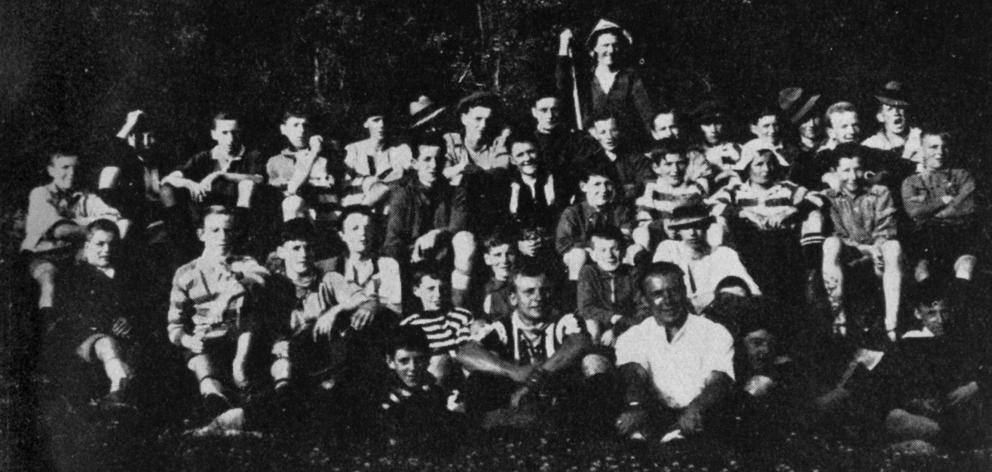
Ideal weather prevailed throughout and thus contributed to the enjoyment of the camp. The weather, however, was too hot to be conducive to intensive athletics, unless the enthusiasm for swimming made up for field sports. A typical day’s programme included a morning and afternoon swim, a tramp over the hills, a cricket match, group games, and the fascinating campfire at night, where eager youths would gather to listen to the yarns of daring and achievement, and sing in unison the songs and choruses of the day.
Harbour teems with dogfish
Otago Harbour is said to be at present teeming with dogfish, and as a result fishing, both by amateur and professional fisherman, is much handicapped. The large number of young dogfish, about a foot in length, is a feature of the unwelcome visitation. Of course dogfish visit the harbour every summer, but the unusually large
number this season is regarded to be due to an appreciable extent to the warm, sunny weather of the past few weeks. The other night a fisherman’s catch consisted wholly of dogfish, ranging in size from 12 inches to 4 feet 6 inches in length. However, the light variable winds and pleasant sunshine of this season are so immeasurably more delightful than that of the gales and rain which dulled the past three or four summers, that shows of dogfish in the harbour are as nothing compared with the pleasure of enjoying a real sunny summer.
Police and seamen in serious affray
Christchurch: A serious affray between the police and members of the crews of overseas vessels took place at Lyttelton last evening. Constables Baynes and Hislop arrested a seamen off the Maimoa (which arrived direct from New York on Saturday) for using obscene language. The man resisted and his mates closed around and obstructed the police. A crowd collected, consisting largely of seamen and firemen, and the constables were mobbed and very roughly handled. But not only did they succeed in sticking to their man, but they made another arrest. At the height of the disturbance, when the two constables were about exhausted, police reinforcements arrived and as the mob still maintained its attack, a constable slipped across to the police station and returned with a supply of batons. Thus armed, the police forced their way to the station, beating off several ugly rushes by the free use of their staves. At the station the door was rushed, and another arrest was made. Stones were thrown, and so alarming was the attitude of the crowd that a threat to read the Riot Act was made. This apparently had due effect, for the crowd broke up and gradually dispersed. The sequel to the disturbance at Lyttelton took place in the Magistrate’s Court when five firemen from the steamer Maimoa were charged before Mr S.E. McCarthy, SM, with serious offences arising therefrom.
Sport in the curriculum
The importance of school games was discoursed on at the teachers’ conference in Wellington and it was resolved: “That the Minister of Education be requested to give official recognition to sport by setting aside one period of an hour each week for the sole purpose of school games, the syllabus to be rearranged accordingly.” — ODT, 12.1.1921.












